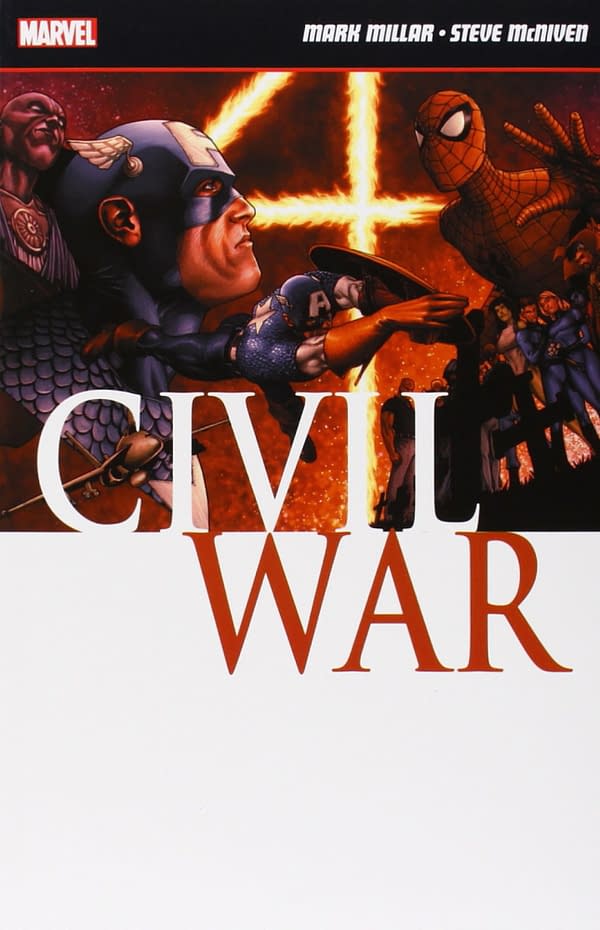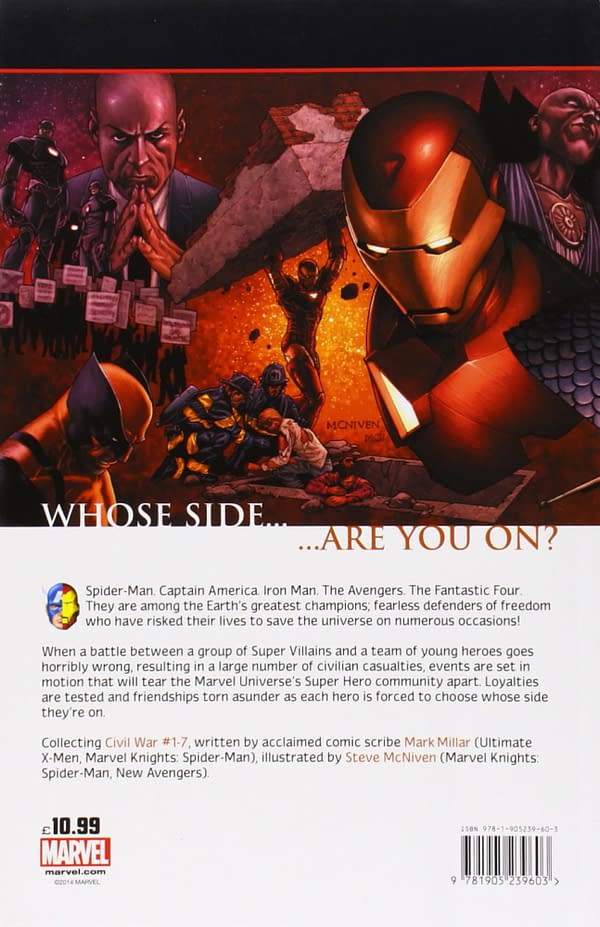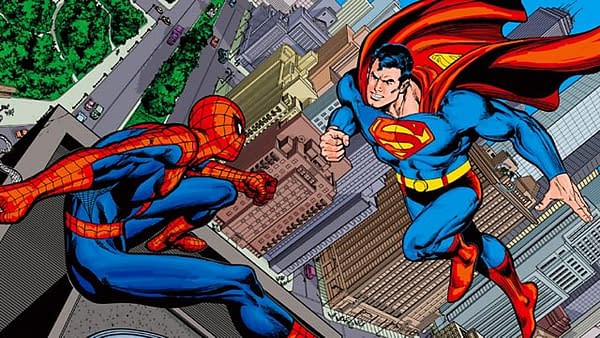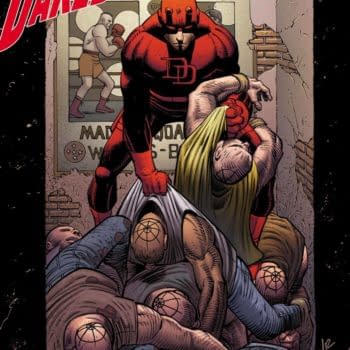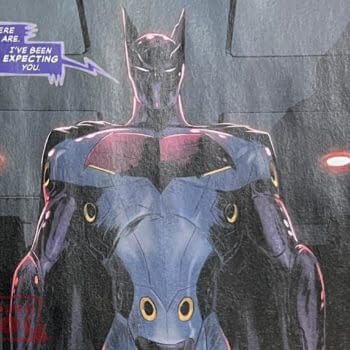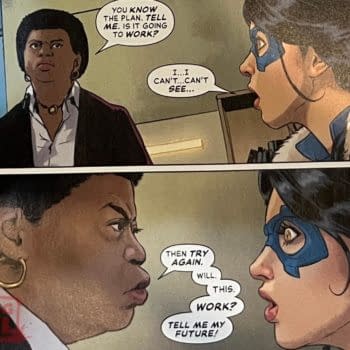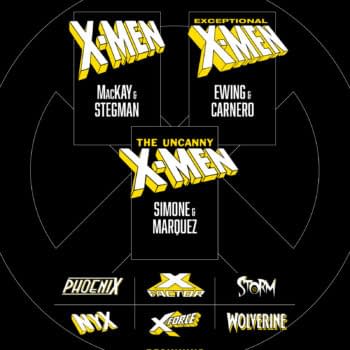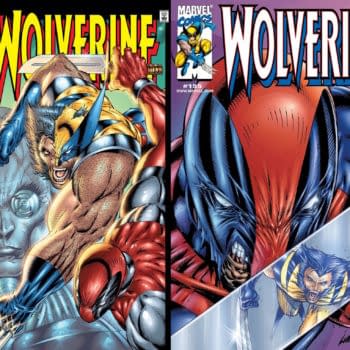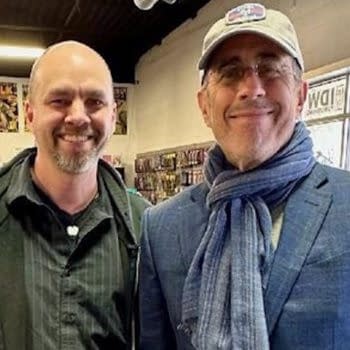Posted in: Comics, Current News, Marvel Comics | Tagged: civil war, Mark Millar, marvel, marvel vs. dc
Civil War Is Marvel's Best-Selling Graphic Novel, Ever
Civil War Is Marvel's Best-Selling Graphic Novel, Ever
On Friday, BBC Radio 4 ran an episode of their Archive On 4 series, dubbed Marvel vs DC: Contest of the Champions by Simon Hollis. A run-through the history of Marvel Comics, DC Comics and their rivalry. It's made for a general audience, has the likes of Jim Shooter, Chris Soule, Amy Chu, Paul Levitz, Chris Claremont, Ann Nocenti and many others retelling familiar stories. And along the way, we have Mark Millar who calls himself the "writer of Marvel's biggest-selling graphic novel of all time, Civil War."
It sounded like the usual overclaim from Mark Millar. Previously claiming to have won GLAAD Awards that he had not, that he wrote the biggest comic book launch of an original property for 20 years when he had arranged a bulk sale from Reed Expo that was then pulped, and all his many stunts to get media attention when a book was launched, that were all engineered to create dubiously sourced headlines, something he is a master at.
So, I asked Marvel Comics directly about this new claim, expecting it to be knocked back by something like Essential Spider-Man or even Deadpool Kills The Marvel Universe. But no, my cynicism was misplaced and, yes, it turns out that this is an absolutely true claim by Mark Millar. Civil War, by Mark Millar and Steve McNiven, is Marvel's best-selling graphic novel ever. And one of those facts worth noting, recording and confirming.
Civil War was published in 2006, and sees the US government in the Marvel Universe pass a Superhero Registration Act, to bring super-powered individuals act under official regulation, somewhat akin to law enforcement. Superheroes who oppose the act, led by Captain America, find themselves in conflict with its supporters, led by Iron Man. The superheroes who support the law, including Mister Fantastic and Carol Danvers, become increasingly authoritarian. Civil War explores the conflict between liberty and security against a backdrop of the US government's increased surveillance of its citizens with the Homeland Act, and attitudes towards dissent. The 2016 film Captain America: Civil War in the Marvel Cinematic Universe loosely adapted the storyline.
Here's the radio show to listen to: Marvel vs DC: Contest of the Champions
Marvel and DC, the two titans of America superhero comics, have been locked in cosmic battle for over six decades – raging across publishing, radio, TV, movies, gaming and animation. It's one of the greatest rivalries in the history of pop culture, ferociously debated by generations of readers, fans and industry creatives alike. While both companies are now worth billions, this wasn't always the case. This feature goes back to their early comic book roots, where DC comics and young upstart Marvel both had offices in 1960s Manhattan – and yet differed widely in their approach to the genre, posing very distinct ideas of what our superheroes should be – and as a result, what it means to be human. Do we want to look up to the skies or do we really want to see a reflection of ourselves? Are our heroes other, outsiders like gods – or are they basically people like us, who gain strange powers but keep their flaws? Readers had a choice. The creative rivalry between Marvel and DC comics has always been more than a question of sales or market share. It is a fascinating culture clash of ideals, morals and even politics. It has constituted one of the greatest post-war, pop-culture wars of our times. For years DC Comics dominated the super-hero genre with its pulp tales of super-powered crime fighting, bright costumes and capes, shiny headquarters, secret identities and primary colours. Their heroes – Superman, Wonder Woman, Batman, the Flash, the Green Lantern – have a kind of mythic grandeur. But dig deeper, and there's another story. DC's creative department had its own secret identity, driven mostly by writers and artists who felt themselves to be at the margins of mainstream American society. Marvel Comics in its modern form arrived later, in the early 1960s, a totally different cultural era. In every way the precocious new kid on the block, Marvel offered a widely different set of ideas about what superheroes ought to be – they would be like us. The tone was less authoritarian than the opposition, politically liberal under the stewardship of Stan Lee, tapping into the emerging counter-culture and creating a web of integrated characters (the 'Marvel Universe'). Marvel heroes – Spider-Man, the Hulk, Captain America, Iron Man, the Fantastic Four – lived in our world and suffered as we do. They had financial difficulties, dead-end jobs, romantic heartache, teenage angst, even drug addiction, suffered blindness, breakdown and divorce. They encountered street protest and the counter-culture, gang violence and organised racism. . Each company watched the other. Each company tried to outdo the other, either on their own terms or – sometimes brilliantly – their opponents'. This is the comic-book bedrock upon which the blockbuster superhero movie franchises are currently fighting tooth and nail. Talking to industry legends from both companies, artists, writers, experts and diehard fans, this Archive on 4, presented by documentary maker and lifelong Marvel and DC comics fan Simon Hollis, tells the story of the Greatest Battle on Earth. A Brook Lapping production for BBC Radio 4


